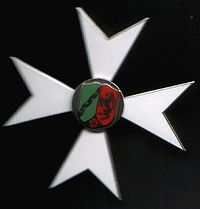
Westphalia is a region of northwestern Germany and one of the three historic parts of the state of North Rhine-Westphalia. It has an area of 20,210 square kilometres (7,800 sq mi) and 7.9 million inhabitants.

North Rhine-Westphalia or North-Rhine/Westphalia, commonly shortened to NRW, is a state (Land) in Western Germany. With more than 18 million inhabitants, it is the most populous state in Germany. Apart from the city-states, it is also the most densely populated state in Germany. Covering an area of 34,084 km2 (13,160 sq mi), it is the fourth-largest German state by size.
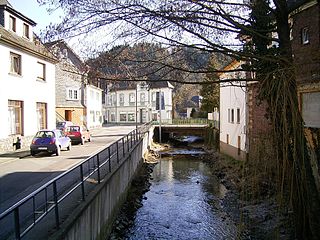
Morsbach is a municipality in Oberbergischer Kreis, a district in North Rhine-Westphalia near the border of Rhineland-Palatinate in Germany. In 2015, Morsbach's population was 10,600. The central village, also named Morsbach, has a population of 3,400. With a number of buildings dating back to the 12th century, it is a popular spot for hikers and other nature lovers.

Alpen is a municipality in the district of Wesel, North Rhine-Westphalia, Germany.

Meerbusch is a town in Rhein-Kreis Neuss, North Rhine-Westphalia, Germany. It has been an incorporated town since 1970. Meerbusch is the municipality with the most income millionaires in North Rhine-Westphalia.

Raesfeld is a municipality in the district of Borken in the state of North Rhine-Westphalia, Germany. It is located approximately 10 km south of Borken and 30 km east of the Dutch border.

Hürtgenwald is a municipality in the district of Düren in the federal state of North Rhine-Westphalia, Germany. It is located in the Eifel hills, approx. 15 km south-west of Düren. Much of the area is covered by forest.

Nörvenich is a municipality in the district of Düren in the state of North Rhine-Westphalia, Germany. It is located about 10 km (6 mi) east of Düren.
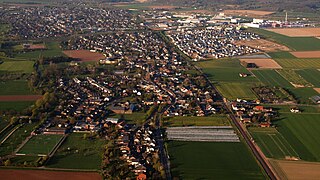
Weilerswist is a municipality in the district of Euskirchen in the state of North Rhine-Westphalia, Germany. It is located in the Eifel hills, approximately 10 kilometers north of Euskirchen, and 20 kilometers south-west of Cologne.
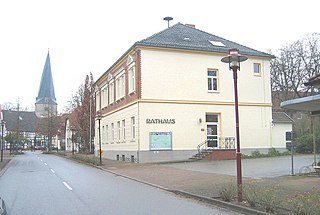
Rahden is a town in the far north of North Rhine-Westphalia between Bielefeld and Bremen and between Hanover and Osnabrück. Rahden is part of the Minden-Lübbecke District in East Westphalia-Lippe.

Niederkassel is a town in the Rhein-Sieg district, in North Rhine-Westphalia, Germany, with a population of around 37,000 people. It is situated on the right bank of the Rhine, approx. 10 km (6 mi) north-east of Bonn and 15 km (9 mi) south-east of Cologne. Niederkassel is subdivided into seven quarters : Mondorf, Rheidt, Niederkassel, Uckendorf, Stockem, Lülsdorf and Ranzel. People can walk next to the river Rhine in Lülsdorf, Niederkassel and Rheidt.

Altenberge is a municipality in the district of Steinfurt, in North Rhine-Westphalia, Germany. It is situated approximately 15 km south-east of Steinfurt and 15 km north-west of Münster.

Kamp-Lintfort is a (small) town in Wesel District, in North Rhine-Westphalia, Germany. It is located 8 kilometres north-west of Moers.
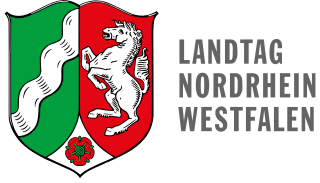
The Landtag of North Rhine-Westphalia is the state parliament (Landtag) of the German federal state of North Rhine-Westphalia, which convenes in the state capital of Düsseldorf, in the eastern part of the district of Hafen. The parliament is the central legislative body in the political system of North Rhine-Westphalia. In addition to passing of laws, its most important tasks are the election of the Minister-President of the state and the administration of the government. The current government is a coalition of the CDU and the Greens, supporting the cabinet of Minister-President Hendrik Wüst since June 2022.

Wilhelm Knabe was a German ecologist, pacifist, civil servant and politician, remembered as a founding member of the Green Party in Germany, and a pioneer of conservation of the environment who shaped the party for decades.

The III. Path or The Third Path is a far-right and neo-Nazi political party in Germany.
Herbert Schnoor was a German politician and lawyer.
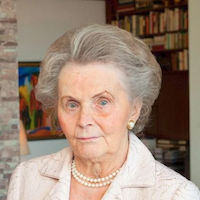
Else Beitz, the wife of industrialist Berthold Beitz, helped conceal and feed Jewish people during World War II, which earned her several awards, including the Righteous Among the Nations. She was a German scholar who studied and published a book about industrial education.

The Constitutional Court of North Rhine-Westphalia is the constitutional court of the most populous German state NRW. Art. 76 of the state constitutions authorizes and establishes the court. In its history the method of composition has been changed multiple times.
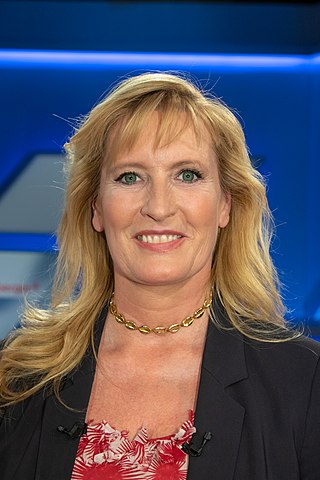
Claudia Kleinert is a German television host.
